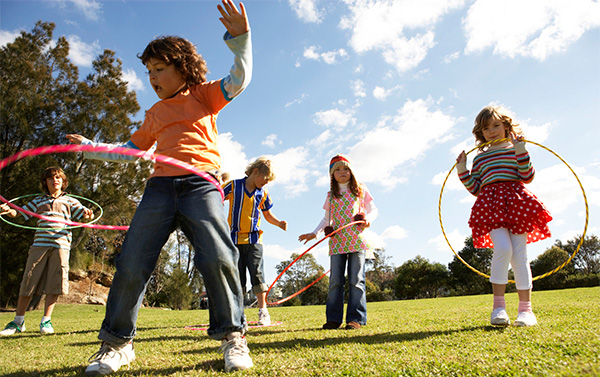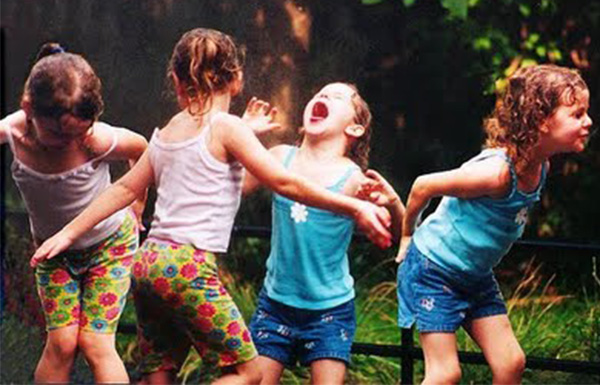Scientists Claim Time On The Playground Is More Beneficial Than Time In The Classroom
August 6, 2014
A new study shows that when it comes to a child's brain development, time in the classroom may be less important than time on the playground.

image credit unknown
"The experience of play changes the connections of the neurons at the front end of your brain," says Sergio Pellis, a researcher at the University of Lethbridge in Alberta, Canada. "And without play experience, those neurons aren't changed," he says.
"It is those changes in the prefrontal cortex during childhood that help wire up the brain's executive control center, which has a critical role in regulating emotions, making plans, and solving problems," Pellis says. "So play," he adds, "is what prepares a young brain for life, love and even schoolwork."
"But to produce this sort of brain development, children need to engage in plenty of so-called free play," Pellis says. "No coaches, no umpires, no rulebooks."
"Whether it's rough-and-tumble play or two kids deciding to build a sand castle together, the kids themselves have to negotiate, well, what are we going to do in this game? What are the rules we are going to follow," Pellis says. "The brain builds new circuits in the prefrontal cortex to help it navigate these complex social interactions."

image credit unknown
Much of what scientists know about this process comes from research on animal species that engage in social play.
"For one thing, play behavior is remarkably similar across species. Rats, monkeys, and children all abide by similar rules that require participants to take turns, play fair, and not inflict pain. Play also helps both people and animals become more adept socially," Pellis says.
"And in people, an added bonus is that the skills associated with play ultimately lead to better grades."
In one study, researchers found that the best predictor of academic performance in eighth grade was a child's social skills in third grade.
Another hint that play matters, Pellis says, is that "countries where they actually have more recess tend to have higher academic performance than countries where recess is less."
Via NPR
 Dogs Are Forced To Wear The Things They Steal — And It’s Hilarious
Dogs Are Forced To Wear The Things They Steal — And It’s Hilarious
 Meet Nazgul: The Dog Who Crashed An Olympic Ski Race And Nearly Won
Meet Nazgul: The Dog Who Crashed An Olympic Ski Race And Nearly Won
 Bill Murray Says This Painting 'Saved His Life' — And It Still Inspires Visitors Today
Bill Murray Says This Painting 'Saved His Life' — And It Still Inspires Visitors Today
 Professor Watches His Student Compete At The Olympics After She Requested An Extension On An Assignment
Professor Watches His Student Compete At The Olympics After She Requested An Extension On An Assignment
 He Lost Everything And Had To Give Up His Dog — Then Strangers Brought Her Back Home
He Lost Everything And Had To Give Up His Dog — Then Strangers Brought Her Back Home
 10 Powerful Inventions Where Helping Others Came Before Profit
10 Powerful Inventions Where Helping Others Came Before Profit
 James Van Der Beek Has Passed. But What He Said Before He Died, We All Need To Hear
James Van Der Beek Has Passed. But What He Said Before He Died, We All Need To Hear
 He Ordered A Doctor Bag — But The Size Has Him Laughing Uncontrollably
He Ordered A Doctor Bag — But The Size Has Him Laughing Uncontrollably
 Mom Was About To Miss Her Flight, So A Stranger Picked Up Her Kid And Ran With Her
Mom Was About To Miss Her Flight, So A Stranger Picked Up Her Kid And Ran With Her
 Woman Stunned By Valuation Of Rare Māori Jade Hei-Tiki Found In Her Garden
Woman Stunned By Valuation Of Rare Māori Jade Hei-Tiki Found In Her Garden
 Mom Red Fox Calls Her Adorable Pups Out For The First Time
Mom Red Fox Calls Her Adorable Pups Out For The First Time
